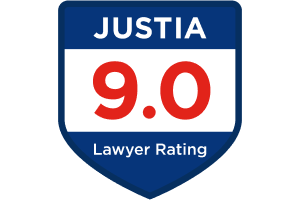- Free Strategy Session: (847) 906-3460 Tap Here to Call Us
Supreme Court Protects Whistleblowers
Bragança Law LLC || February 10, 2024

In a unanimous opinion announced just Thursday of this past week, the United States Supreme Court rejected the attempt of securities industry players to remove a key protection for SEC whistleblowers. In the case Murray v. UBS, the Supreme Court reversed an opinion of the Second Circuit Court of Appeals, which we criticized on this website in June 2023 (https://www.secdefenseattorney.com/blog/new-risks-for-whistleblowers/), that had the potential to make it much easier for employers to retaliate against employees who reported employer wrongdoing to a regulator.
As we have explained in another post (https://www.secdefenseattorney.com/blog/what-should-a-potential-whistleblower-know-before-blowing-the-whistle/ ), the risks to current employees of becoming a whistleblower are substantial, including facing a very real risk of retaliation if they are not careful. If the Second Circuit ruling had been allowed to stand, it would have been virtually impossible for someone to blow the whistle on their current employer without facing financial ruin.
Who is a Whistleblower?
A whistleblower is an individual who exposes unlawful actions occurring in either the public or private sector by reporting them to the SEC or another government agency. To become a whistleblower, you must have specific credible information, based on independent knowledge or analysis, about violations of the federal securities laws that is not publicly available. To learn more about whistleblowing, check out our earlier posts. (https://www.secdefenseattorney.com/blog/new-risks-for-whistleblowers/ and https://www.secdefenseattorney.com/blog/what-should-a-potential-whistleblower-know-before-blowing-the-whistle/).
The SEC Office of the Whistleblower was established under the Dodd-Frank Act of 2010, which relied in part on the Sarbanes-Oxley Act of 2002 (”SOX”) to provide some protection for whistleblowers. Awards are limited to cases in which the SEC collects at least $1 million and the awards range between 10% and 30% of the amount collected. Any awards, however, are almost completely at the SEC’s discretion. In November 2023, the SEC announced that enforcement actions involving whistleblowers had resulted in financial remedies exceeding $6 billion since 2011, and that whisteblowers had been awarded more than $1 billion. (https://www.sec.gov/page/whistleblower-100million).
Retaliation claim in Murray v. UBS
In Murray v. UBS, the plaintiff Murray filed retaliation claims against his former employer, UBS. Murray was an independent analyst at UBS who reported efforts by his superiors to change the results of his reports to support UBS’s trading strategies, essentially sacrificing the best interests of investors to benefit UBS’s clients. Murray had previously received stellar performance reviews, but internal UBS emails revealed that Murray’s superiors decided to either fire him or move him to a different department where his reports could be altered without violating any SEC regulation. At trial, UBS claimed that Murray was not terminated for his reports, but rather as part of widespread layoffs because of the bank’s poor economic performance.
District Court Jury Finds in Favor of Murray
The district court in Murray instructed the jury that to find that UBS terminated Murray “because of” his whistleblowing, it need only conclude that the whistleblowing was a “contributing factor” in his dismissal. UBS would then have the burden of disproving that its actions constituted retaliation. Indeed, this “burden-shifting” approach was settled law at the time. The jury sided with Murray reaching a verdict that UBS must pay $2.6 million in damages and attorney’s fees.
UBS’s Appeal – Verdict is Reversed
UBS appealed, however, and the Second Circuit reversed the judgment in favor of Murray. The Second Circuit rejected what had previously seemed to be settled law, holding that it is not sufficient for an employee to merely demonstrate that their whistleblowing was a “contributing factor” to their employer’s actions. The employee must also prove the negative, i.e., that there was no non-retaliatory motive for the employer’s actions. Murray appealed the reversal to the Supreme Court, and on February 8, 2024, the Supreme Court reversed again, holding that the district court had applied the correct standard.
U.S. Supreme Court Finds in Favor of Murray
In the unanimous opinion, written by Justice Sotomayor, the Court made short work of UBS’s argument that SOX required whistleblowers to demonstrate that the only motive for their termination (or other negative action taken against them) was to retaliate for their whistleblowing. Relying on the plain language of the statute, analogies to other employment statutes, and Congress’s clear intent, the Court held that once a whistleblower demonstrates that their protected activity (i.e., whistleblowing) was a “contributing factor” in the unfavorable personnel action, the burden shifts to the employer to prove that it would have taken the same action but for the protected activity. This is likely to result in the jury verdict being reinstated, but the case went back to the Second Circuit to apply the correct standard in reviewing the district court verdict.
How do you protect yourself?
It is essential that you talk to an attorney with substantial experience representing whistleblowers. To maximize the chances of getting an award and not getting fired, whistleblowers should contact such an attorney before submitting any tips to the SEC or reporting suspected misconduct to their employer or any government agency.






















